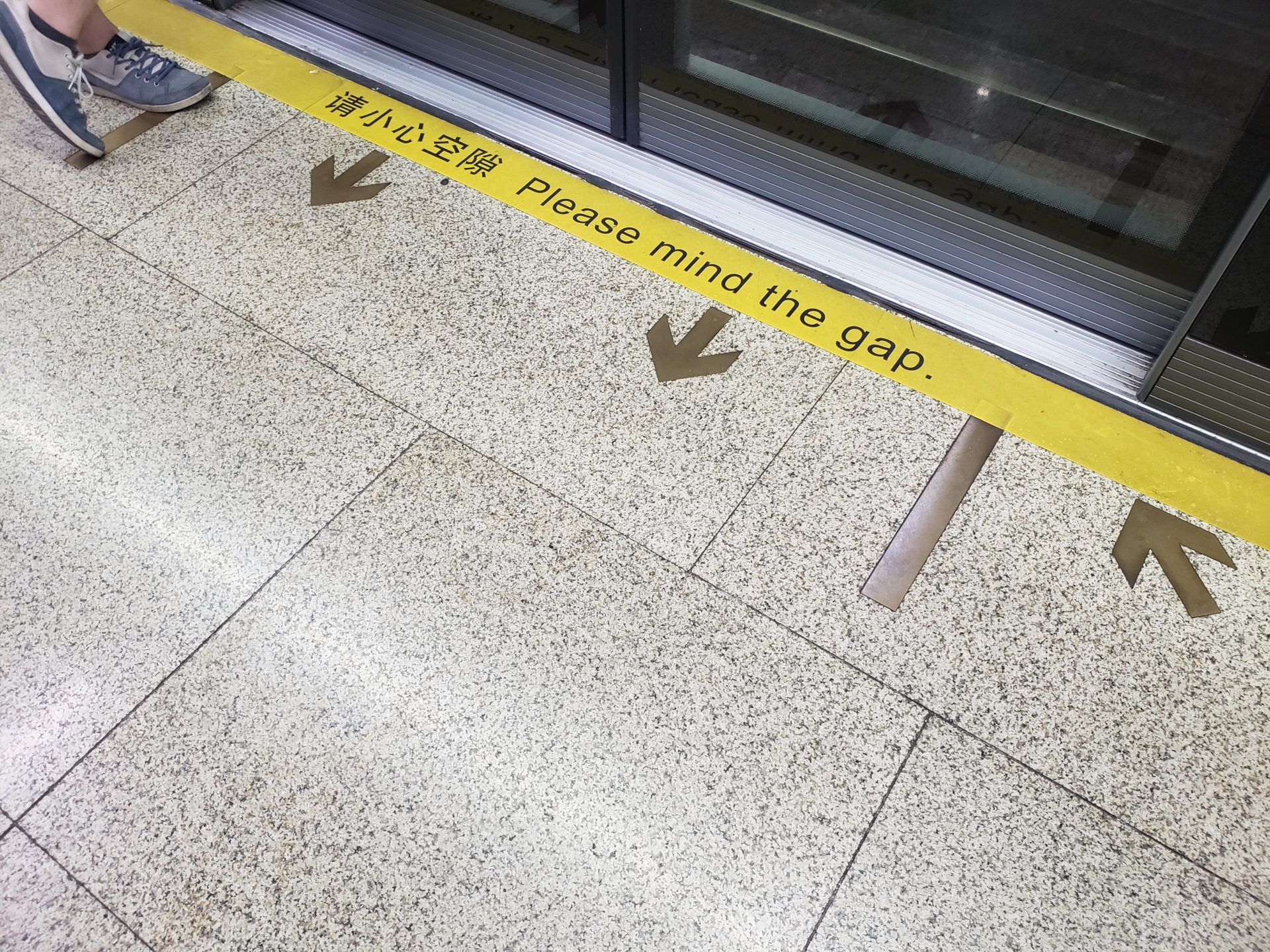Shanghai Metro is part of the TPOL in Shanghai Trip Report.
If you’re sick of “DiDi” (China’s replacement of Uber), and want a more efficient way of getting around Shanghai, take the metro. Sure, you will stick out when you use coins to pay for your ticket instead of WePay (see Without Technology TPOL’s the Creepy Old Guy in Shanghai), but it’s worth the embarrassment.
What you need to learn to maneuver around is the mass of people who do not share Western concepts of personal space. If you ride the metro during rush hour, you have two choices: get pushed around or become an enforcer. After being bumped repeatedly, it is understandable to become the latter. It’s also a necessity. The weak get left behind and the strong get ahead.
This jostling doesn’t end on the way to the train. It is also required to get on it. In China, riders line up on the edge of the platform. If there is any room between you and the train, someone will step in front of you. Westerners may call this “cutting,” but in China it is normal.
When the doors open, the silliest thing happens. The people looking to board are so anxious to get on that they don’t wait for those needing to exit to get off. Instead, there’s a human traffic jam that is cured when an enforcer steamrolls the group in one direction or the other.
Once on the train, be prepared to be knocked down by a rider who, despite taking the metro presumably countless times, is still taken by surprise by the initial movement of the train. Without fail, station after station, someone stumbles sideways and lets out a gasp of surprise whenever the train goes forward.
To get off the train, you must continue to be an enforcer. Saying “excuse me” in English or Mandarin will only get you to the next train station.
Overall
Shanghai has a great metro system, but it’s not for the passive person.


The Queen loves shoving the little people.
Lol. Nothing better.
China now has a queen?
“Didi”, the app, is not a direct translation of little brother. 滴滴 is an onomatopoeia of the beep sound. Although, Didi 弟弟 means little brother.
Oooh ha! That makes more sense.
To be fair, “please mind the gap” means “don’t slip into the platform gap”, not”please line up behind a gap”
Not in China it doesn’t. Cultural meaning is different there ha
Imo that English direction might be open to your interpretation, but the Chinese is not. It literally means “please be careful of the gap”. “The gap” therefore could only mean the gap between the platform and the train.
You can also look at the positioning of that message. Does it make more sense to alert people of the platform gap near the platform gap?
No, that message does not mean “please be considerate and keep a distance from another”.
It is a joke. It isn’t serious.
Didi means drip drip. brother is a homonym, asshole. fact check next time
Repeated comment. Read next time. Nice name calling though.